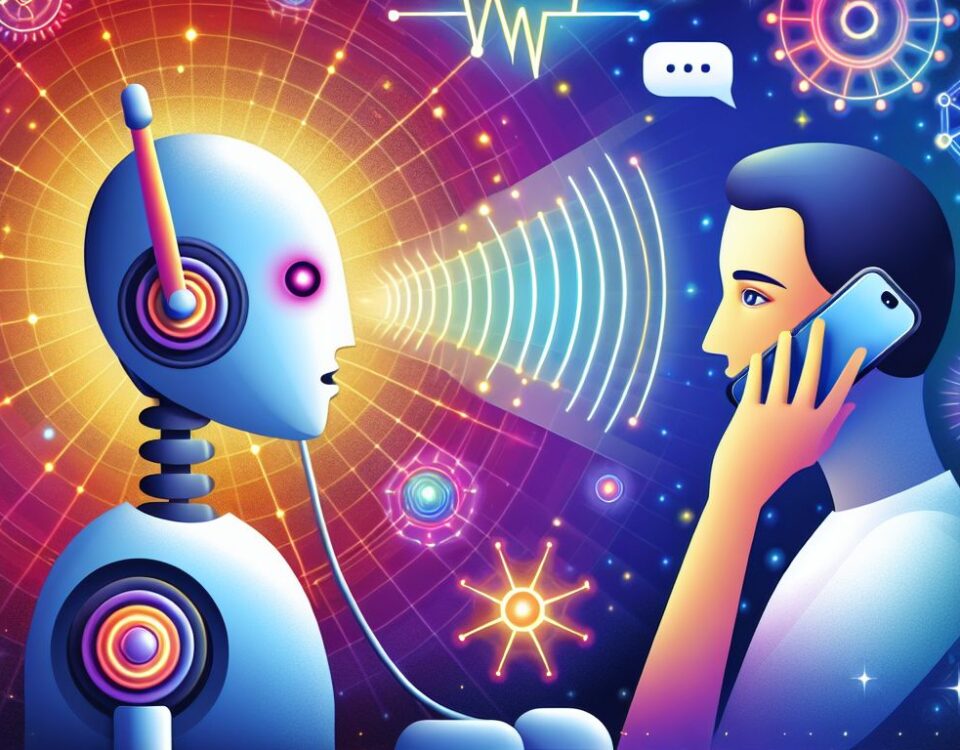Boosting Brand Engagement With AI Influencer Marketing

The Age of AI: The Emergence of AI Chatbots
November 22, 2023
What Is AI and How Does It Work?
November 24, 2023
Boosting Brand Engagement With AI Influencer Marketing
In recent years, a novel phenomenon has emerged on the digital marketing horizon, one that is reshaping the way brands interact with their audiences: AI influencer marketing. This innovative approach leverages artificial intelligence to create or enhance influencers, who in turn, captivate and engage online communities. In this article, we’ll delve into the intricacies of AI influencer marketing and reveal how it’s carving a niche in the ever-evolving landscape of brand promotion.
The Emergence of AI Influencers
Traditionally, influencer marketing has relied on real individuals to promote products and services through their social media platforms. These individuals range from celebrities to micro-influencers, each with their own unique audience demographics. The introduction of AI influencers takes this concept to the next level by utilizing virtual personas that are powered by sophisticated algorithms. These AI entities can engage with users, create content, and influence purchasing decisions, just like their human counterparts.
The Mechanics of AI Influencer Marketing
At the core of AI influencer marketing is machine learning and natural language processing. These technologies enable AI influencers to create content that resonates with a particular audience, adapt their communication style, and respond to trends in real-time. Furthermore, AI influencers can be programmed to embody certain characteristics, styles, or values, ensuring that they align perfectly with the brand’s image and target audience.
The Benefits for Brands
One of the most compelling advantages of AI influencer marketing is its unparalleled consistency and control. Brands no longer have to worry about the unpredictability that comes with human influencers, such as scandals or off-brand behavior. AI influencers operate within the parameters set by their creators, ensuring that the brand message remains clear and consistent.
Moreover, AI influencers are not limited by human constraints like the need for rest or the bounds of geography. They can engage with followers 24/7 across different time zones, expanding the brand’s reach to a global audience. Additionally, since they’re not subject to the same financial expectations as human influencers, AI influencers can be a cost-effective solution for brands looking to maximize their marketing budgets.
The Challenges and Ethical Considerations
While AI influencer marketing offers numerous benefits, it also raises questions about authenticity and transparency. Brands must navigate the ethical implications of using virtual personas to influence consumer behavior. Disclosure is crucial; audiences should be aware that they are interacting with AI. Failing to do so can damage brand trust and credibility.
Furthermore, as with any AI-driven initiative, there is the potential for biases to be encoded into these virtual influencers, inadvertently perpetuating stereotypes or excluding certain demographics. Brands must be vigilant in monitoring and addressing these issues to ensure that their AI influencers are as inclusive and representative as possible.
Crafting Contagious Content with AI Influencers
The art of creating captivating content doesn’t change with the advent of AI influencers. It’s still about understanding the audience and delivering value in a way that is both engaging and shareable. AI influencers can be equipped with data-driven insights to produce content that has a high likelihood of going viral, leveraging algorithms that analyze trends, engagement, and consumer behavior.
The Future of AI Influencer Marketing
As technology continues to advance, we can expect AI influencer marketing to become even more sophisticated. The potential for hyper-personalization, where content is tailored to individual consumers, could redefine the boundaries of digital marketing and engagement. Brands that are early adopters of this technology stand to gain a competitive edge by staying ahead of the curve in this exciting new frontier.
Conclusion
AI influencer marketing is more than just a passing fad; it’s a transformative approach that’s setting the stage for the next generation of digital marketing. By blending the power of artificial intelligence with the persuasive prowess of influencer marketing, brands can unlock new levels of engagement and brand loyalty. As with any disruptive technology, there will be hurdles to overcome, but for those willing to embrace AI influencer marketing, the potential rewards are immense. It’s clear that AI influencers are not just influencing the present; they’re shaping the future of brand-consumer interactions.
Get the power of AI for your marketing campaigns
Simplify campaign management and maximize results with AdMind. Create high quality content, generate images, integrate digital channels, automatize editorial plans, track performance, and optimize for maximum success.






